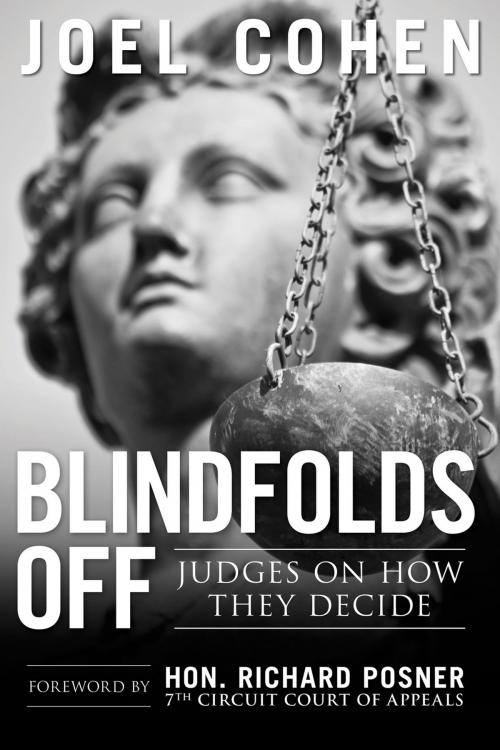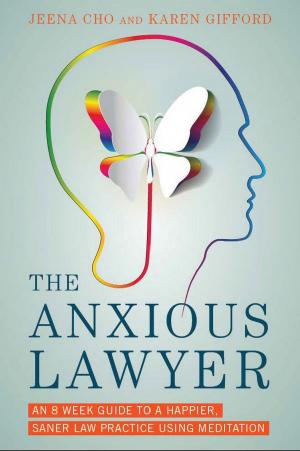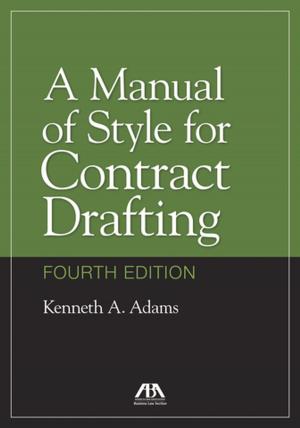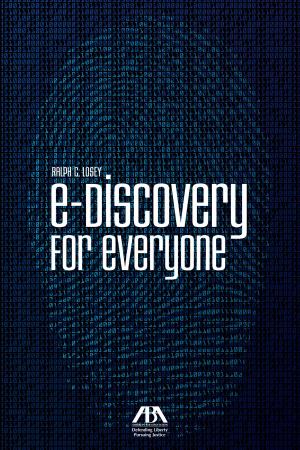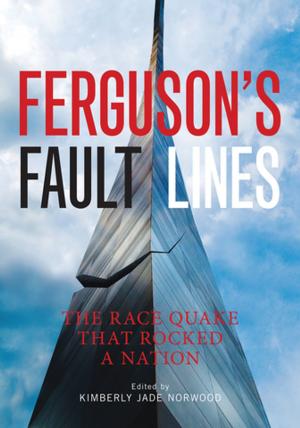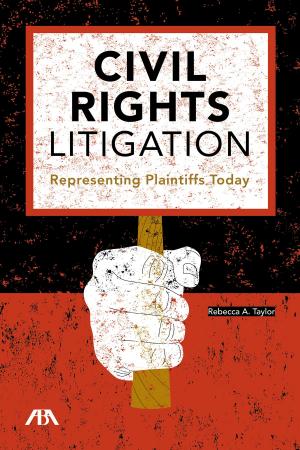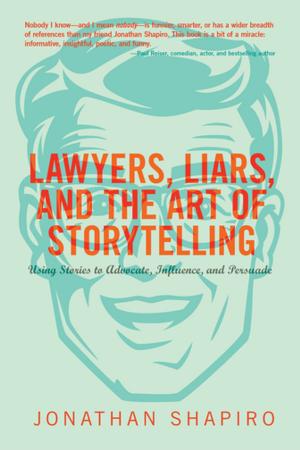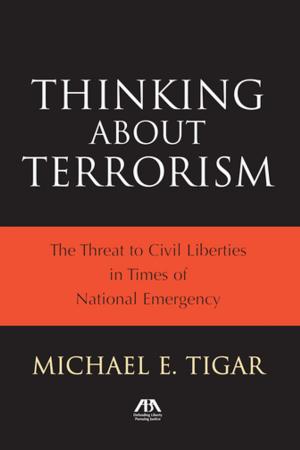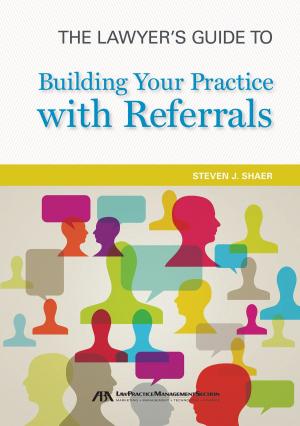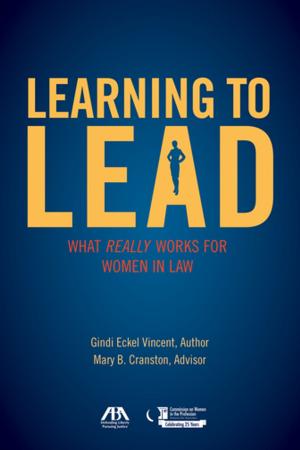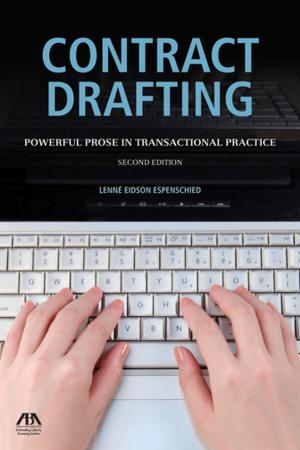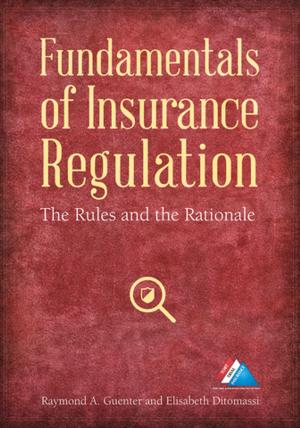| Author: | Joel Cohen | ISBN: | 9781627226806 |
| Publisher: | American Bar Association | Publication: | October 7, 2014 |
| Imprint: | American Bar Association | Language: | English |
| Author: | Joel Cohen |
| ISBN: | 9781627226806 |
| Publisher: | American Bar Association |
| Publication: | October 7, 2014 |
| Imprint: | American Bar Association |
| Language: | English |
Remarkably little is known to the general public, or even to the practicing legal profession, about judges—how they decide cases, how they allocate work between staff and themselves, their work ethic, their psychology, the extralegal influences that play on them.
This important new book penetrates that veil of secrecy with thirteen interviews tape recorded in the chambers of the respective judges. The author, Mr. Joel Cohen, who practices at Stroock & Stroock & Lavan, LLP in New York, is a skillful and tenacious, though invariably courteous, interviewer. He has picked as the interviewees federal district judges who have presided in famous, publicity-attracting cases, cases most likely to challenge a judge’s fidelity to a passive, formalistic—which is to say traditional—mode of judicial decision making, and he has focused the interviews on those cases.
The book features selected specific, well known cases for the free-flowing dialogues which follow, from the thousands of cases to which these thirteen judges have been assigned. These are cases which have raised critical questions about justice, policy, precedent and the law and the way in which the currents and tides of their lives and of our ever-changing society have influenced those rulings.
You'll discover if the judges have been open, even aware, of what experiences have influenced their rulings, and where judges acknowledge awareness of these potential influences—of their "priors" as Judge Posner would articulate it—are they fully candid, to themselves and others, about whether, and to what degree, it has informed their rulings? Or have they contrarily decided, after inwardly acknowledging the "awareness," that they can or did fairly decide the case, so that they needn’t publicly reveal themselves?
If you are even remotely curious about how judges make decisions, this book provides some eye-opening interviews that will shed light on their decision-making process.
This important new book penetrates that veil of secrecy with thirteen interviews tape recorded in the chambers of the respective judges. The author, Mr. Joel Cohen, who practices at Stroock & Stroock & Lavan, LLP in New York, is a skillful and tenacious, though invariably courteous, interviewer. He has picked as the interviewees federal district judges who have presided in famous, publicity-attracting cases, cases most likely to challenge a judge’s fidelity to a passive, formalistic—which is to say traditional—mode of judicial decision making, and he has focused the interviews on those cases.
The book features selected specific, well known cases for the free-flowing dialogues which follow, from the thousands of cases to which these thirteen judges have been assigned. These are cases which have raised critical questions about justice, policy, precedent and the law and the way in which the currents and tides of their lives and of our ever-changing society have influenced those rulings.
You'll discover if the judges have been open, even aware, of what experiences have influenced their rulings, and where judges acknowledge awareness of these potential influences—of their "priors" as Judge Posner would articulate it—are they fully candid, to themselves and others, about whether, and to what degree, it has informed their rulings? Or have they contrarily decided, after inwardly acknowledging the "awareness," that they can or did fairly decide the case, so that they needn’t publicly reveal themselves?
If you are even remotely curious about how judges make decisions, this book provides some eye-opening interviews that will shed light on their decision-making process.
Remarkably little is known to the general public, or even to the practicing legal profession, about judges—how they decide cases, how they allocate work between staff and themselves, their work ethic, their psychology, the extralegal influences that play on them.
This important new book penetrates that veil of secrecy with thirteen interviews tape recorded in the chambers of the respective judges. The author, Mr. Joel Cohen, who practices at Stroock & Stroock & Lavan, LLP in New York, is a skillful and tenacious, though invariably courteous, interviewer. He has picked as the interviewees federal district judges who have presided in famous, publicity-attracting cases, cases most likely to challenge a judge’s fidelity to a passive, formalistic—which is to say traditional—mode of judicial decision making, and he has focused the interviews on those cases.
The book features selected specific, well known cases for the free-flowing dialogues which follow, from the thousands of cases to which these thirteen judges have been assigned. These are cases which have raised critical questions about justice, policy, precedent and the law and the way in which the currents and tides of their lives and of our ever-changing society have influenced those rulings.
You'll discover if the judges have been open, even aware, of what experiences have influenced their rulings, and where judges acknowledge awareness of these potential influences—of their "priors" as Judge Posner would articulate it—are they fully candid, to themselves and others, about whether, and to what degree, it has informed their rulings? Or have they contrarily decided, after inwardly acknowledging the "awareness," that they can or did fairly decide the case, so that they needn’t publicly reveal themselves?
If you are even remotely curious about how judges make decisions, this book provides some eye-opening interviews that will shed light on their decision-making process.
This important new book penetrates that veil of secrecy with thirteen interviews tape recorded in the chambers of the respective judges. The author, Mr. Joel Cohen, who practices at Stroock & Stroock & Lavan, LLP in New York, is a skillful and tenacious, though invariably courteous, interviewer. He has picked as the interviewees federal district judges who have presided in famous, publicity-attracting cases, cases most likely to challenge a judge’s fidelity to a passive, formalistic—which is to say traditional—mode of judicial decision making, and he has focused the interviews on those cases.
The book features selected specific, well known cases for the free-flowing dialogues which follow, from the thousands of cases to which these thirteen judges have been assigned. These are cases which have raised critical questions about justice, policy, precedent and the law and the way in which the currents and tides of their lives and of our ever-changing society have influenced those rulings.
You'll discover if the judges have been open, even aware, of what experiences have influenced their rulings, and where judges acknowledge awareness of these potential influences—of their "priors" as Judge Posner would articulate it—are they fully candid, to themselves and others, about whether, and to what degree, it has informed their rulings? Or have they contrarily decided, after inwardly acknowledging the "awareness," that they can or did fairly decide the case, so that they needn’t publicly reveal themselves?
If you are even remotely curious about how judges make decisions, this book provides some eye-opening interviews that will shed light on their decision-making process.
